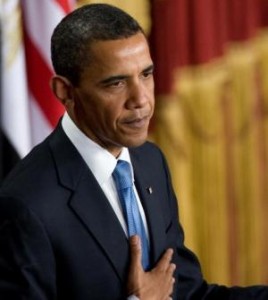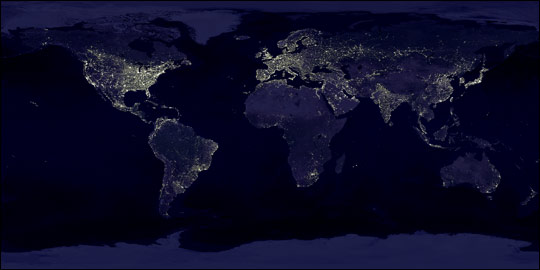
In this time of great decision, I have come to Cairo not to talk about the past, but to look to the future — to a future that Egyptians can lead and can define.
Ladies and Gentlemen: In our world today, a growing number of men and women are securing their liberty. And as these people gain the power to choose, they are creating democratic governments in order to protect their natural rights. We should all look to a future when every government respects the will of its citizens — because the ideal of democracy is universal.
For 60 years, my country, the United States, pursued stability at the expense of democracy in this region here in the Middle East — and we achieved neither. Now, we are taking a different course. We are supporting the democratic aspirations of all people.
….. We know these advances will not come easily, or all at once. We know that different societies will find forms of democracy that work for them. When we talk about democracy, though, we are referring to governments that protect
certain basic rights for all their citizens — among these, the right to speak freely. The right to associate.
The right to worship as you wish. The freedom to educate your children — boys and girls. And freedom from the midnight knock of the secret police.Securing these rights is the hope of every citizen, and the duty of every government. In my own country, the progress of democracy has been long and difficult. And given our history, the United States has no cause for false pride and we have every reason for humility.
After all, America was founded by individuals who knew that all human beings — and the governments they create — are inherently imperfect. And the United States was born half free and half slave. And it was only in my lifetime that my government guaranteed the right to vote for all of its people.
Whoops, wrong speech!! That was Condi Rice speaking in Cairo, back in 2005. 
Obama’s speech was so much more..well, nuanced. Whereas Condi chose to focus on the struggle for democracy in the Middle East, Obama preferred to talk about “relationships”and in particular what he called “the tension between the USA and Muslims around the world”. What is central, according to Obama, is to understand difference, find what we share, discover our common humanity (etc etc..).
As I said in a previous post, I think that Obama will have to continue what the Bush regime started, no other policy would make any sense..The biggest sign of this was that he spoke quite firmly about the need for a Palestinian State, and was prepared to arouse the wrath of the most militant Zionists.










Recent Comments